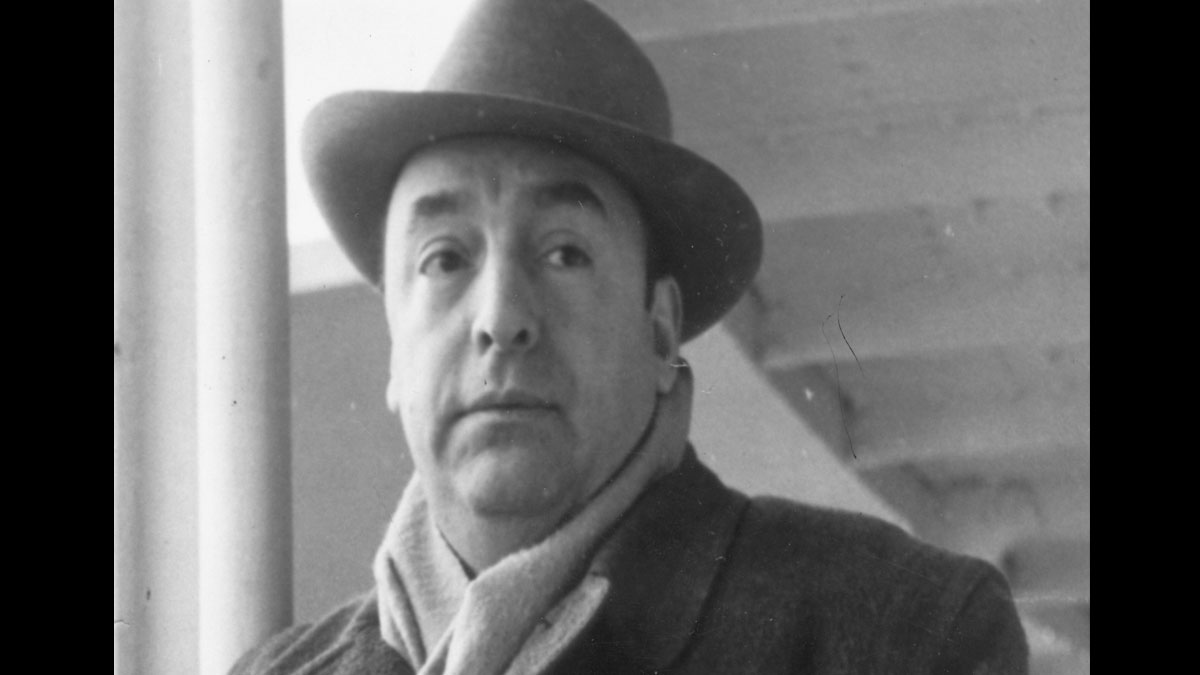Chile admits that Pablo Neruda was probably murdered
It is 'clearly possible and highly probable' Chile's best-loved poet was killed under Pinochet's regime

A free daily email with the biggest news stories of the day – and the best features from TheWeek.com
You are now subscribed
Your newsletter sign-up was successful
The Chilean government has admitted that Pablo Neruda might have been murdered shortly after the coup that ushered in the brutal dictatorship of Augusto Pinochet.
The Nobel Prize-winning poet and political activist supposedly died of cancer in 1973, but rumours that he was killed by Pinochet's troops have lingered for decades.
The country's Interior Ministry has now said "it's clearly possible and highly probable" that a third party was responsible for his death, the Associated Press reports. However, it warned that an official investigation into his death had not yet reached its conclusion.
The Week
Escape your echo chamber. Get the facts behind the news, plus analysis from multiple perspectives.

Sign up for The Week's Free Newsletters
From our morning news briefing to a weekly Good News Newsletter, get the best of The Week delivered directly to your inbox.
From our morning news briefing to a weekly Good News Newsletter, get the best of The Week delivered directly to your inbox.
Who was Pablo Neruda?
His best-know work – Twenty Love Poems and a Desperate Song –was first published when Neruda was just 19. He went on to win the Nobel Prize for literature in 1971 for poetry that "brings alive a continent's destiny and dreams". Neruda was famed for his passionate love poems but equally well known for his fervent Marxist views.
He was a lifelong member of Chile's Communist Party, a former diplomat and a close friend of socialist President Salvador Allende, who committed suicide as Pinochet's troops stormed the presidential palace. Neruda intended to go into exile shortly after Pinochet came to power, but died a day before his planned departure.
What happened to him?
A free daily email with the biggest news stories of the day – and the best features from TheWeek.com
Officially, Neruda died of prostate cancer in a Santiago hospital on 23 September 1973, aged 69. But his chauffeur, Manuel Araya, has long alleged that he was murdered by Pinochet's agents who took advantage of his illness. He claims they gave him a lethal injection while he was in hospital over fears that he could become the leader of the opposition to the dictatorship.
"Until the day I die I will not alter my story," Araya told the BBC. "Neruda was murdered. They didn't want Neruda to leave the country so they killed him."
The official investigation into Neruda's death continues.
-
 What to know before filing your own taxes for the first time
What to know before filing your own taxes for the first timethe explainer Tackle this financial milestone with confidence
-
 The biggest box office flops of the 21st century
The biggest box office flops of the 21st centuryin depth Unnecessary remakes and turgid, expensive CGI-fests highlight this list of these most notorious box-office losers
-
 What are the best investments for beginners?
What are the best investments for beginners?The Explainer Stocks and ETFs and bonds, oh my
-
 Epstein files topple law CEO, roil UK government
Epstein files topple law CEO, roil UK governmentSpeed Read Peter Mandelson, Britain’s former ambassador to the US, is caught up in the scandal
-
 Iran and US prepare to meet after skirmishes
Iran and US prepare to meet after skirmishesSpeed Read The incident comes amid heightened tensions in the Middle East
-
 Israel retrieves final hostage’s body from Gaza
Israel retrieves final hostage’s body from GazaSpeed Read The 24-year-old police officer was killed during the initial Hamas attack
-
 China’s Xi targets top general in growing purge
China’s Xi targets top general in growing purgeSpeed Read Zhang Youxia is being investigated over ‘grave violations’ of the law
-
 Panama and Canada are negotiating over a crucial copper mine
Panama and Canada are negotiating over a crucial copper mineIn the Spotlight Panama is set to make a final decision on the mine this summer
-
 Why Greenland’s natural resources are nearly impossible to mine
Why Greenland’s natural resources are nearly impossible to mineThe Explainer The country’s natural landscape makes the task extremely difficult
-
 Iran cuts internet as protests escalate
Iran cuts internet as protests escalateSpeed Reada Government buildings across the country have been set on fire
-
 US nabs ‘shadow’ tanker claimed by Russia
US nabs ‘shadow’ tanker claimed by RussiaSpeed Read The ship was one of two vessels seized by the US military